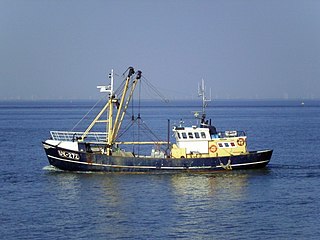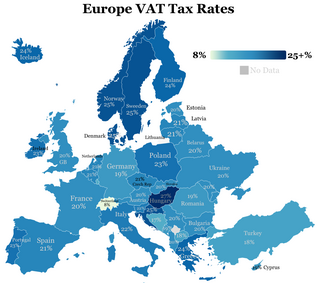
The European Court of Justice (ECJ), formally just the Court of Justice, is the supreme court of the European Union in matters of European Union law. As a part of the Court of Justice of the European Union, it is tasked with interpreting EU law and ensuring its uniform application across all EU member states under Article 263 of the Treaty of the Functioning of the European Union (TFEU).

A directive is a legal act of the European Union that requires member states to achieve particular goals without dictating how the member states achieve those goals. A directive's goals have to be made the goals of one or more new or changed national laws by the member states before this legislation applies to individuals residing in the member states. Directives normally leave member states with a certain amount of leeway as to the exact rules to be adopted. Directives can be adopted by means of a variety of legislative procedures depending on their subject matter.

R v Secretary of State for Transport was a judicial review case taken against the United Kingdom government by a company of Spanish fishermen who claimed that the United Kingdom had breached European Union law by requiring ships to have a majority of British owners if they were to be registered in the UK. The case produced a number of significant judgements on British constitutional law, and was the first time that courts held that they had power to restrain the application of an Act of Parliament pending trial and ultimately to disapply that Act when it was found to be contrary to EU law.

The Trade Marks Act 1994 is the law governing trade marks within the United Kingdom and the Isle of Man. It implements EU Directive No. 89/104/EEC which forms the framework for the trade mark laws of all EU member states, and replaced an earlier law, the Trade Marks Act 1938. Although the UK's trade mark regime covers the Isle of Man, it does not extend to the Channel Islands which have their own trade mark registers.

In the European Economic Area, a supplementary protection certificate (SPC) is a sui generis intellectual property (IP) right that extends the duration of certain rights associated with a patent. It enters into force after expiry of a patent upon which it is based. This type of right is available for various regulated, biologically active agents, namely human or veterinary medicaments and plant protection products. Supplementary protection certificates were introduced to encourage innovation by compensating for the long time needed to obtain regulatory approval of these products.
A colour trade mark or color trademark is a non-conventional trade mark where at least one colour is used to perform the trade mark function of uniquely identifying the commercial origin of products or services.
The freedom of movement for workers is a policy chapter of the acquis communautaire of the European Union. The free movement of workers means that nationals of any member state of the European Union can take up an employment in another member state on the same conditions as the nationals of that particular member state. In particular, no discrimination based on nationality is allowed. It is part of the free movement of persons and one of the four economic freedoms: free movement of goods, services, labour and capital. Article 45 TFEU states that:
- Freedom of movement for workers shall be secured within the Community.
- Such freedom of movement shall entail the abolition of any discrimination based on nationality between workers of the Member States as regards employment, remuneration and other conditions of work and employment.
- It shall entail the right, subject to limitations justified on grounds of public policy, public security or public health:
- The provisions of this article shall not apply to employment in the public service.
Government procurement or public procurement is undertaken by the public authorities of the European Union (EU) and its member states in order to award contracts for public works and for the purchase of goods and services in accordance with principles derived from the Treaties of the European Union. Such procurement represents 13.6% of EU GDP as of March 2023, and has been the subject of increasing European regulation since the 1970s because of its importance to the European single market.

The Equal Treatment in Goods and Services Directive 2004 of 13 December 2004 is a directive which prohibits both direct and indirect sexual discrimination in the provision of goods and services in the European Union.

The European driving licence is a driving licence issued by the member states of the European Economic Area (EEA); all 27 EU member states and three EFTA member states; Iceland, Liechtenstein and Norway, which give shared features the various driving licence styles formerly in use. It is credit card-style with a photograph. They were introduced to replace the 110 different plastic and paper driving licences of the 300 million drivers in the EEA. The main objective of the licence is to reduce the risk of fraud.

The European Union value-added tax is a value added tax on goods and services within the European Union (EU). The EU's institutions do not collect the tax, but EU member states are each required to adopt in national legislation a value added tax that complies with the EU VAT code. Different rates of VAT apply in different EU member states, ranging from 17% in Luxembourg to 27% in Hungary. The total VAT collected by member states is used as part of the calculation to determine what each state contributes to the EU's budget.

The quadricycle is a European Union vehicle category for four-wheeled microcars, which allows these vehicles to be designed to less stringent requirements when compared to regular cars. Quadricycles are defined by limitations in terms of weight, engine power and speed.
Metock v Minister for Justice, Equality and Law Reform (2008) C-127/08 is a European Union law case, significant in Ireland and Denmark, on the Citizens Rights Directive and family unification rules for migrant citizens. Citizenship of the European Union was established by Article 20 of the Treaty on the functioning of the European Union (TFEU) and the Citizenship Directive 2004/38 elaborates the right of Union citizens and their family members to move and reside freely in the territory of a member state, consolidating previous Directives dealing with the right to move and reside within the European Community (EC).

The Dangerous Preparations Directive is a European Union directive in the field of occupational safety and health and consumer protection. It complements the Dangerous Substances Directive (67/548/EEC) and replaces a previous Dangerous Preparations Directive (88/379/EEC). The European Court of Justice had ruled in 1985 that Dangerous Substances Directive (67/548/EEC) applies only to pure substances, not preparations.
Roadworthiness or streetworthiness is a property or ability of a car, bus, truck or any kind of automobile to be in a suitable operating condition or meeting acceptable standards for safe driving and transport of people, baggage or cargo in roads or streets, being therefore street-legal.
SAS Institute Inc. v World Programming Ltd (2012) C-406/10 was a decision of the European Court of Justice which established that copyright protection does not extend to software functionality, programming languages, and file types.

AAA & Anor v Minister for Justice & Ors, [2017] IESC 80, was an Irish Supreme Court case which arose from the judgment delivered by Cooke J in the High Court on 17 May 2012, due to the fact that the applicant AAA and her children were deported to Nigeria in 2011. The court held that "as a rule" there is no right to an oral hearing in an application for leave to remain on humanitarian grounds and subsidiary protection where there has already been oral hearings in relation to an application for asylum. This decision clarified the grounds under which a claim for subsidiary protection could be heard.
In EU law, reverse discrimination occurs when the national law of a member state of the European Union provides for less favourable treatment of its citizens or domestic products than other EU citizens/goods under EU law. Since the creation of the Single Market, the right of EU citizens to move freely within the EU with their families. The right to free movement was codified in EU Directive 2004/38/EC which applies across the whole EEA. However, reverse discrimination is permitted in EU law because of the legal principle of subsidiarity, i.e. EU law is not applicable in situations purely internal to one member state. This rule of purely internal situation does not apply if the EU citizens can provide a cross-border link, e.g. by travel or by holding dual EU citizenship. EU citizens and their families have an automatic right of entry and residence in all EU countries except their own, with exceptions created by a cross-EU state border link. For example, an Irish citizen living in Germany with his family before returning to Ireland can apply for EU family rights. This is referred to as the Surinder Singh route. The cross-border dimension has been the focus of many court cases in recent years, from McCarthy to Zambrano.









